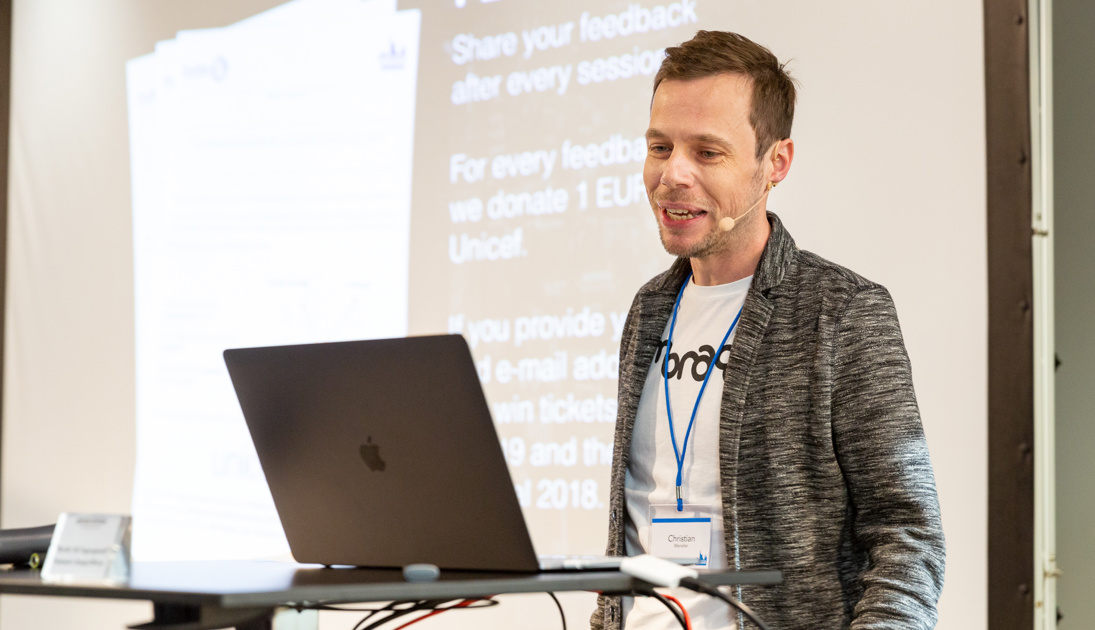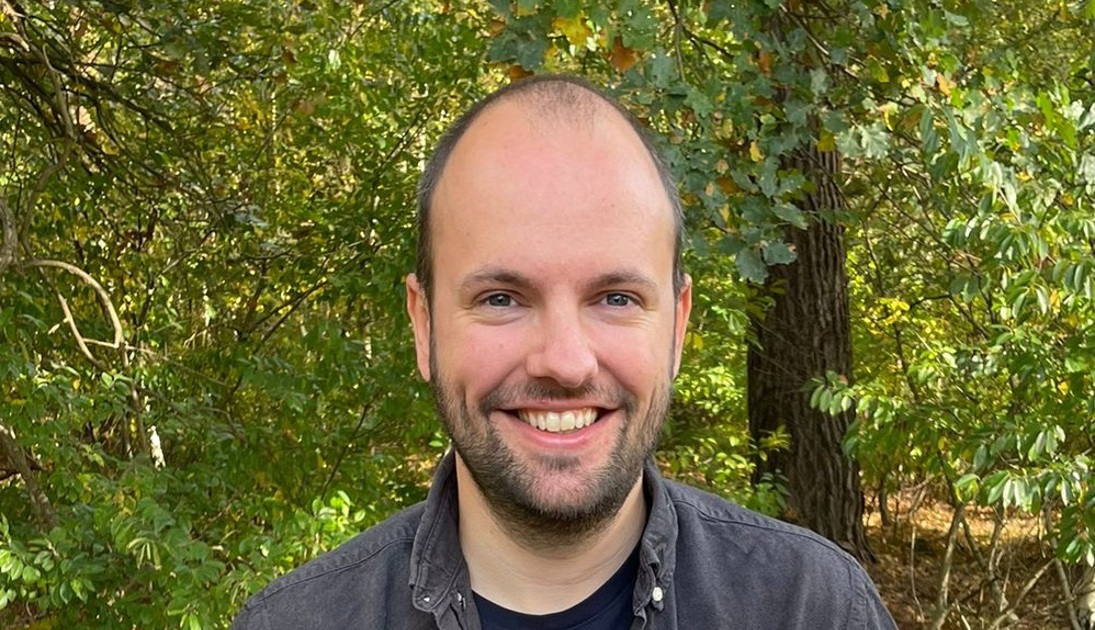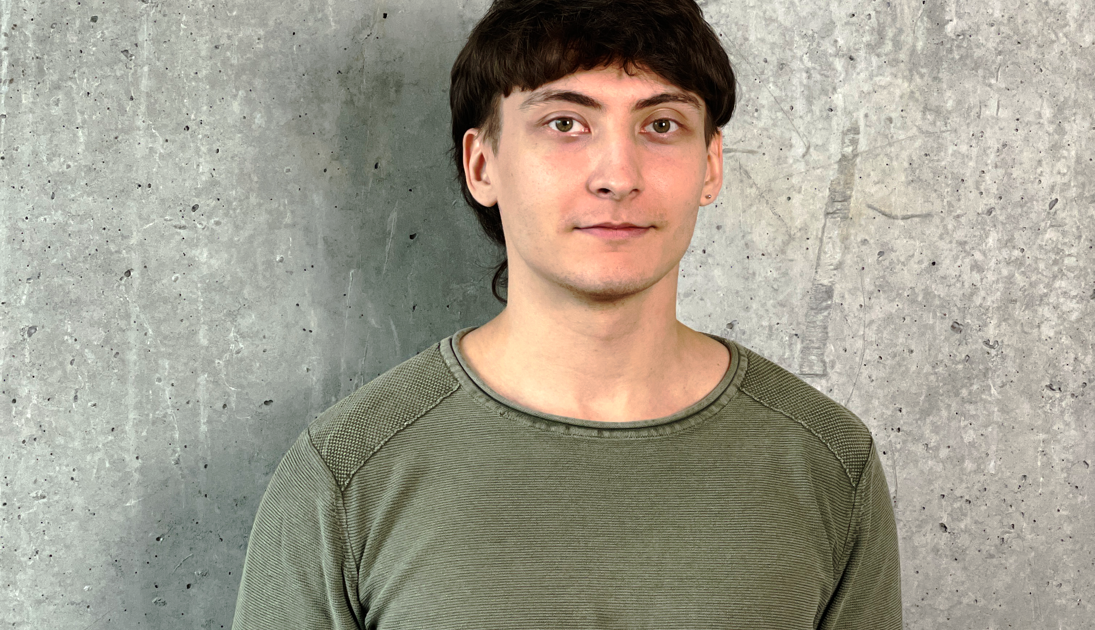At TangleCon 23, in addition to top-notch talks, there will also be workshops that will provide participants with practical knowledge and useful tips for working with IOTA. One of these will be held by the founder of the Web3 Developer Academy, Marco Besier. What exactly the workshop will be about and much more about him, you can read in the interview.
I started out studying mathematics and physics, worked a bunch of years at the university as a researcher, and eventually finished my Ph.D. in mathematics. One topic I was particularly focusing on was elliptic curves. So as you probably know, elliptic curves are quite relevant for cryptography these days, particularly for all sorts of Web3 protocols like Bitcoin, Ethereum, and IOTA. After leaving academia, I started working as a machine learning engineer. While this was what I did in the daytime, my nights were usually spent learning about blockchain tech. I wasn't doing Web3 development for a living at that time, but I was really digging it, building my own little projects and tinkering around with the technology whenever I had a spare moment. Eventually, because I always loved teaching, I started teaching other developers how to build Web3-enabled applications and how blockchain development works. That was the time when I began thinking about turning this into an actual business. So, in the spring of 2022, I decided to switch to working in Web3 full-time and founded the Web3 Developer Academy.
How did you get interested in IOTA?
I quickly realized that the technology is super innovative and exciting, a totally different approach from the rest.
The first time I heard of IOTA was back in 2018, which was the year when I first started investing some money into crypto. One of my friends recommended the currency at the time. So IOTA was actually among my first crypto investments, but really, I didn't know anything about Bitcoin or blockchains at that time — and certainly not about Tangle technology. Then the next bull market hit, and my excitement about Web3 and my understanding of the technology grew increasingly. When I later started teaching my first students, almost all of them were interested in IOTA. At that time, I only focused on Ethereum because it is the largest platform for developers in the Web3 ecosystem. But all these people were asking me about IOTA, and I was like, "OK, let's look into this." I quickly realized that the technology is super innovative and exciting, a totally different approach from the rest. So I started creating some content around IOTA and engaging on social media more and more. As I did that, the community has been really good to me. So that's kind of how it went.
What are you currently working on?
Recently, I decided to open up parts of the academy for free, which is a novel thing. One part of opening this knowledge up to more people was also the decision to organize regular workshops. We had our first community workshop a few weeks ago, which was great fun. We plan to do this more often to allow people to dip their toes into Web3 development.
One thing I recently finished is a free Intro to Web3 Development course. When you join the community, you get this course for free. These lessons will teach you all the fundamentals about Web3 and how to create your first smart contract from scratch. Right now, I'm putting the finishing touches on Web3 Development Mastery, our flagship coaching program that will turn you into a full-stack Web3 developer and help you build a professional career in the Web3 space.
What will you be talking about at TangleCon?
I will talk about EVM chains and how to develop decentralized applications on top of these chains. IOTA is getting ready to launch the Shimmer EVM beta net, and this EVM will be a crucial part of the IOTA ecosystem. In my TangleCon workshop, I will show people how to create their own NFT collection on top of an EVM chain. NFTs are still an exciting Web3 topic, and many people are interested in digging a bit deeper. That's one part of the workshop. The other part is showing people how to enhance their NFT collection with artificial intelligence. More precisely, we will generate a stunning NFT art collection without the need for an artist.
The goal of this workshop is to get people excited about Web3 development and to build something "real" in a short amount of time. Even without coding experience, people can follow this workshop, build their own AI-generated NFT collection, and launch it as smart contracts on an EVM chain of their choice.
What’s the biggest topic for you in the IOTA community right now?
I think the topic that currently excites people the most is IOTA smart contracts. For me, personally, the most exciting topic is definitely the Shimmer EVM. I can't wait to see people take all the learnings from Ethereum and other smart contract chains and port them to the IOTA ecosystem. Furthermore, I'm super pumped to explore how we can leverage IOTA's unique features in conjunction with the "classical" technology from Ethereum.
One thing that is honestly not so clear to me right now is: How will the EVM chain interact with the Tangle? For example: How will native assets, e.g., Tangle-native fungible and non-fungible tokens, be able to interact with EVM chains that are anchored in the IOTA Tangle? How can I manipulate protocol-native assets from within my EVM contracts? I think all these questions are super exciting and will definitely allow for some very unique features.
What is the biggest challenge in the industry at the moment?
My developer academy business model wasn't chosen by accident: I think there is a massive need for skilled builders. Unfortunately, for many projects, the demand for Web3 developers exceeds the supply by a huge margin. Also, there is a difference between someone who really knows their craft and someone who just wrote a bunch of contracts based on "Learn Solidity in 20 minutes" YouTube tutorials. Experienced technical people are critically needed in any software domain, but even more so in Web3 because Web3 has some unique features like immutability of smart contracts. In other words, once a buggy smart contract is deployed, you might not be able to fix it. Therefore, for an ecosystem like IOTA to succeed long-term, you want to put an enormous effort towards attracting skilled technical people to your ecosystem. Because, after all, with poor builders, you'll get poor contracts. And with poor contracts, you'll get poor utility. And with poor utility... Well, what's the point of a Web3 ecosystem with poor utility?!
For this reason, the Web3 community should focus on helping more developers break into Web3. And this includes both new developers that are testing the waters but also the ones that have been in the software engineering industry for 20+ years. In fact, the latter should be the #1 target for any Web3 ecosystem trying to attract builders because these people won't have such a hard time switching from Web2 to Web3. Software development is a craft that encompasses much more than "just" the Web3-specific portion of the tech stack. Therefore, senior Web2-people have a lot to offer.
Another thing that I think is very important is to properly communicate to people that Web3 will really be the internet's future and is much more than all the scams and scandals we constantly hear about. What should be emphasized are use cases where the Web3-part of the solution actually adds value. In other words, you want to build things where you just can't solve the problem in a Web2-way, but you can in a Web3-way. These are the projects Web2-builders need to see so that the decision to "give this Web3 thing a try" becomes easier.
[...] the Web3 community should focus on helping more developers break into Web3. And this includes both new developers that are testing the waters but also the ones that have been in the software engineering industry for 20+ years.
What are your hopes for IOTA in the future?
I hope that IOTA continues to make it one of their top priorities to attract skilled builders. I.e., make sure that the protocol and its testnets are rock-solid. Build utility software that makes it a breeze to deploy dApps and makes it super easy to set up nodes and participate on the protocol-level. Create software development kits and tools that are easy to use and easy to get into.
Furthermore, you want to ensure the documentation of all these tools really kicks a**. Developer documentation is such an underrated part of ecosystem growth. It doesn't have to be a ton of material, just simple and easy to get into. The first touchpoint with new developers needs to be perfect.
I know that many people have already been working tirelessly on improving these things for IOTA for years. I hope that both the foundation and community continue to worship and support these people's vital work. Because, after all, it's the builders who are the lifeblood of any Web3 ecosystem.
Dear Marco, thank you very much for the exciting insights into your work! We are happy to have you as a speaker at TangleCon!





